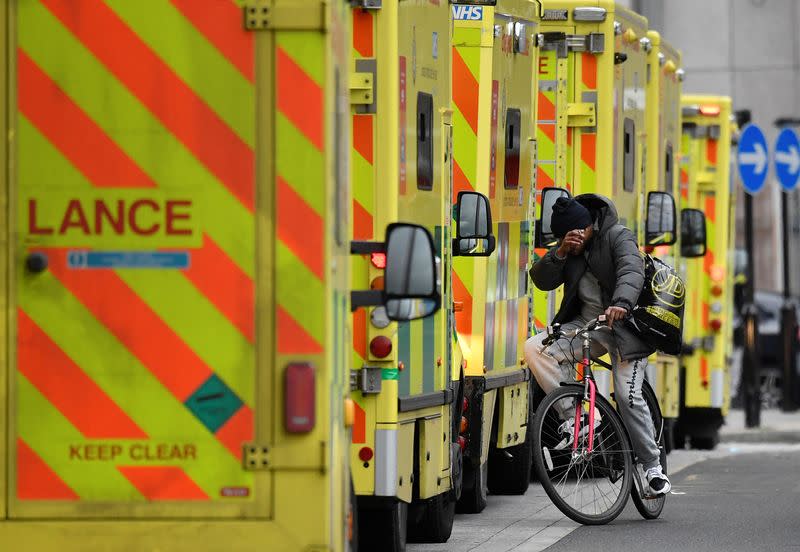Britain's healthcare backlogs grow to record levels

By Andrew MacAskill
LONDON (Reuters) - The number of people in England waiting to start routine hospital treatment has risen to the highest level since records began 15 years ago, while victims of crime are facing long delays for their cases to be heard in court.
As Conservative Party members chose a new leader to succeed Prime Minister Boris Johnson this summer, the problems his successor will have to deal with are stacking up.
Last month, 6.7 million people were waiting to start treatment in Britain's state-run National Health Service (NHS), the highest number since records began in August 2007, new data released on Thursday showed. This is up from 6.6 million last month and 4.4 million on the eve of the COVID-19 pandemic.
A record number of people had to wait more than 12 hours in accident and emergency departments after a decision was made to admit them, the latest figures show.
The pressure on the health service is just one of the major challenges facing the next prime minister. They will also have to deal with surging inflation, industrial strikes and households struggling with a cost-of-living crisis.
Successive governments have tried and largely failed to address the challenges of a health system pressured by an ageing population.
The NHS, which has provided healthcare free at the point of use since 1948, has seen the COVID-19 pandemic increase demands for care while facing its worst ever staffing crisis with thousands of vacancies.
Once a source of national pride, only 36% of people are satisfied with the NHS, the lowest figure since 1997, a survey by the National Centre for Social Research earlier this year found.
Meanwhile, the backlog of cases in Crown Courts is now at its highest in nine months, new data showed.
The overall number of cases waiting to be heard in Crown Court has increased from about 39,000 in early 2020, before the pandemic, to over 58,000 in June this year, the data shows.
(Reporting by Andrew MacAskill; editing by William James)

 Yahoo Movies
Yahoo Movies 